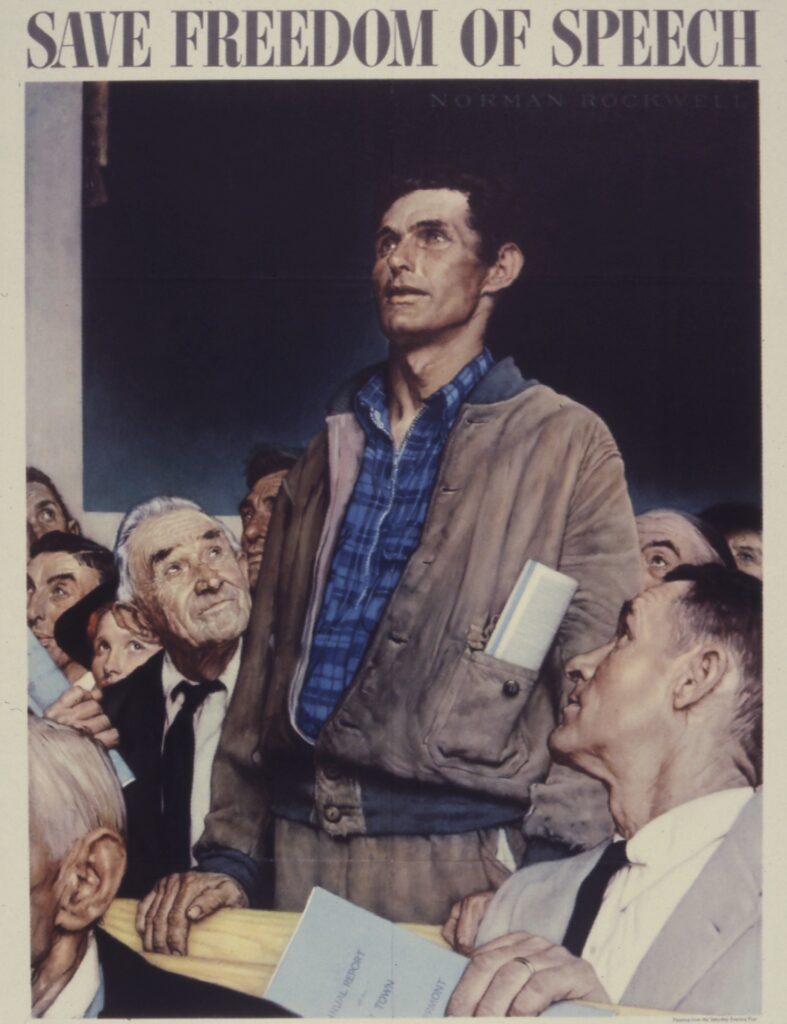If you hope to change the things that you are worried about, it is essential that you speak up. There are many ways to do this, and even very small steps can make a difference. Just talking to your friends, family, and neighbors, sharing your concerns and reliable information about what is happening will help. Trying to talk to people who don’t share your political outlook can be very difficult. Start by asking questions, and then listening. It may help to take the approach that you are planting a seed, rather than trying to change someone’s mind. Here’s a TedX video that discusses how to do this:
And here’s a link to a cute Youtube video talking about how, and how not, to try to change someone’s opinion (but note that the Vubble app mentioned at the end no longer exists).
If you are looking for guidance on all the ways to engage and make a difference, this Rise and Respond spreadsheet is a helpful guide.
Here are some other ideas:
- Put up yard signs about issues that worry you. If they are issues that are highlighted here on the site, then you can point them to IfNotSpeakUp.org for more information. If you want help creating signs, click here.
- Post on social media, whether it’s Facebook, Instagram, TikTok, Bluesky, or Twitter/X, it’s a good way to reach out to a broader community. You are welcome to use our free images, and feel free to use the hashtag #ifnotspeakup and link to this site.
- Speak to your federal legislators. An easy way to do this is through 5Calls.org. There is a downloadable app and they have scripts to call and speak to your federal representatives on many of the issues highlighted on this site.
- Reach out to your local and state representatives. Many of these issues specifically impact your own state or locality and will be of great concern to them.
- If things feel like they are getting really bad, exercise your First Amendment right “peaceably to assemble, and to petition the Government for a redress of grievances.” In other words, join a protest.
If you want to speak out even more strongly, here are some further suggestions from Marc Elias’s Democracy Docket newsletter:
- Volunteer for a campaign or your local party committee: Every campaign needs volunteers, and there’s no better way to support free and fair elections than by working for a pro-democracy candidate.
- Become a Trained Poll Worker: Many counties face a shortage of poll workers, especially during election season. Being a poll worker requires dedication, attention to detail and a willingness to be trained. It’s a meaningful way to serve your community and help protect the integrity of the voting process.
- Run for Something: Look around your community, and you’ll see many local elected positions that need good, qualified people. These could be town or county roles — some of them even directly related to elections, like election judges or county clerks. A great place to start is the organization Run for Something, which offers invaluable resources.
I’ll close here with a quote from Marc Elias. It’s item 8 from his list of 10 Things We Can All Do to Protect Democracy:
“Every one of us has a town square. It may include our social media accounts, our local book club or dinner table. Use your town square to speak out in favor of democracy and against what Republicans are doing. Do not shy away from difficult conversations; seek them out. Engage the curious. Educate those who seek information. We all have a role to play, so don’t assume your voice is too faint or your platform too small.”

